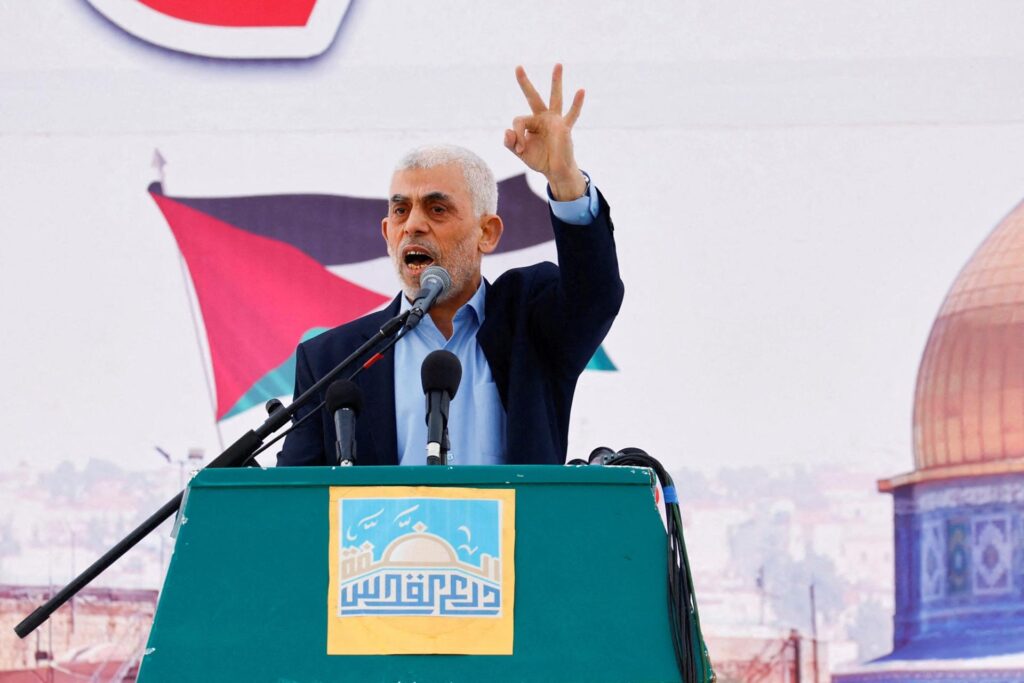
Israel announced Thursday that its soldiers have killed Hamas leader Yahya Sinwar in a routine patrol in the southern Gaza Strip. Hamas confirmed the death a day later, adding that Sinwar had “died fighting and confronting the occupation army.” No official successor has been named.
Israeli officials have long blamed Sinwar for masterminding the Oct. 7 Hamas attacks that killed more than 1,400 Israelis, and assassinating the Hamas leader was cited as one of the primary objectives of the war in Gaza.
Sinwar had repeatedly hindered negotiations for a ceasefire, US officials recently told The New York Times, and some analysts believe his death could leave space for a new Hamas leadership more willing to negotiate. The Hamas chief’s demise may also bring Israeli Prime Minister Benjamin Netanyahu closer to being able to claim a symbolic victory in the war in Gaza.
”Hamas will no longer rule Gaza,” Netanyahu said in a video statement. “This is the beginning of the day after Hamas.”
SIGNALS
Sinwar’s death could give new impetus for ceasefire negotiations
While Netanyahu has obstructed Gaza ceasefire deals, US and Israeli officials have repeatedly blamed Sinwar for obstructing a Gaza ceasefire. His death raises the potential for stalled negotiations to resume — culminating in a possible deal, something US officials had all but ruled out for the remainder of President Joe Biden’s term, The Wall Street Journal reported. “He is the obstacle,” the White House’s John Kirby recently told Fox News. “It’s tough to get him to say yes to things that he’s already said he wants.” However, other experts argued Netanyahu was unlikely to take the opportunity to negotiate a deal: “To believe that you basically have to ignore everything Netanyahu has said and done over the past year,” The Economist’s Middle East correspondent wrote.
Would Sinwar’s death spell the end of Hamas?
Although Sinwar’s killing marks a significant milestone for Israel’s war with Hamas, analysts are skeptical that his absence would cause Hamas to collapse. Killing Sinwar does not “necessarily mean that [Israel] will topple down Hamas,” an Israeli analyst told CNN: “In order for Israel to destroy Hamas, it needs to destroy a critical mass of power centers, not just him.” Audrey Kurth Cronin, a leading expert on terrorism, wrote in Foreign Affairs that it was unlikely that Israel would be able to destroy Hamas by decapitating its leadership. “If killing Hamas leaders could end the group, it would have happened long ago,” Cronin wrote, noting that Israel has killed many other senior members of the group with little impact on its fighting capabilities.
Sinwar’s successor could determine Hamas’ future in Gaza
Sinwar’s successor will play a crucial role in determining Hamas’ future: The group has long been divided between hard-liners like Sinwar and more pragmatic members who believe Hamas needs to maintain legitimacy as a political power in order to lead a fully-fledged Palestinian state. Sinwar’s brother, Mohammed, is his “most likely successor,” an Israeli researcher wrote in The Spectator, and one of the few senior Hamas members left in Gaza. By contrast, a Palestinian political analyst argued that Sinwar’s death “will likely lead to a new Hamas leader from outside of Gaza,” who might be more amenable to international pressure on accepting a ceasefire, but could also be “detached from reality in Gaza.”
